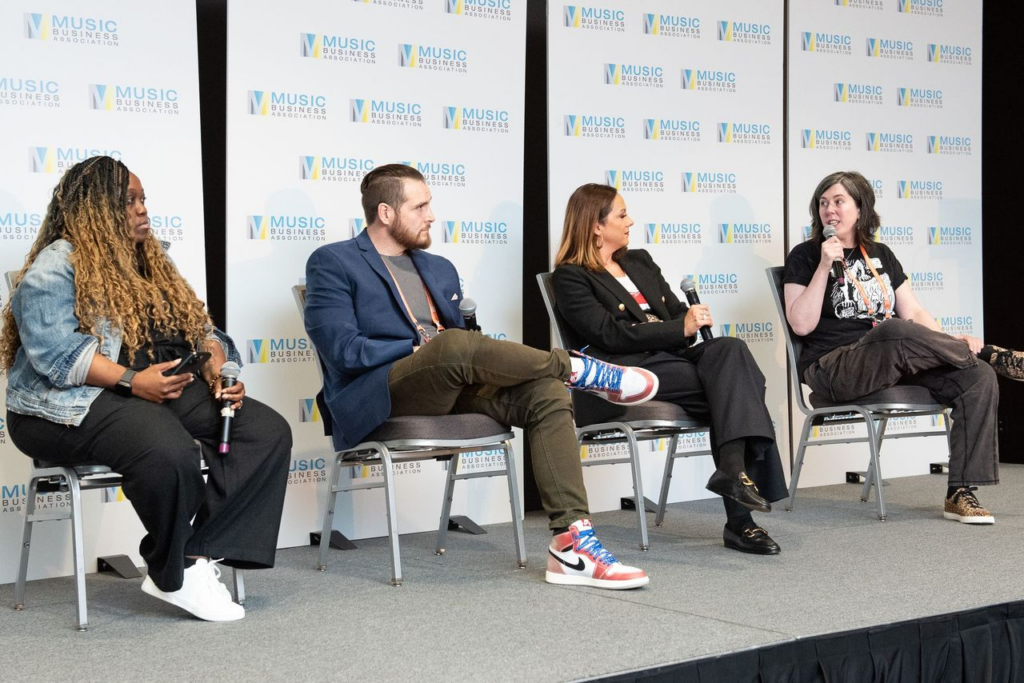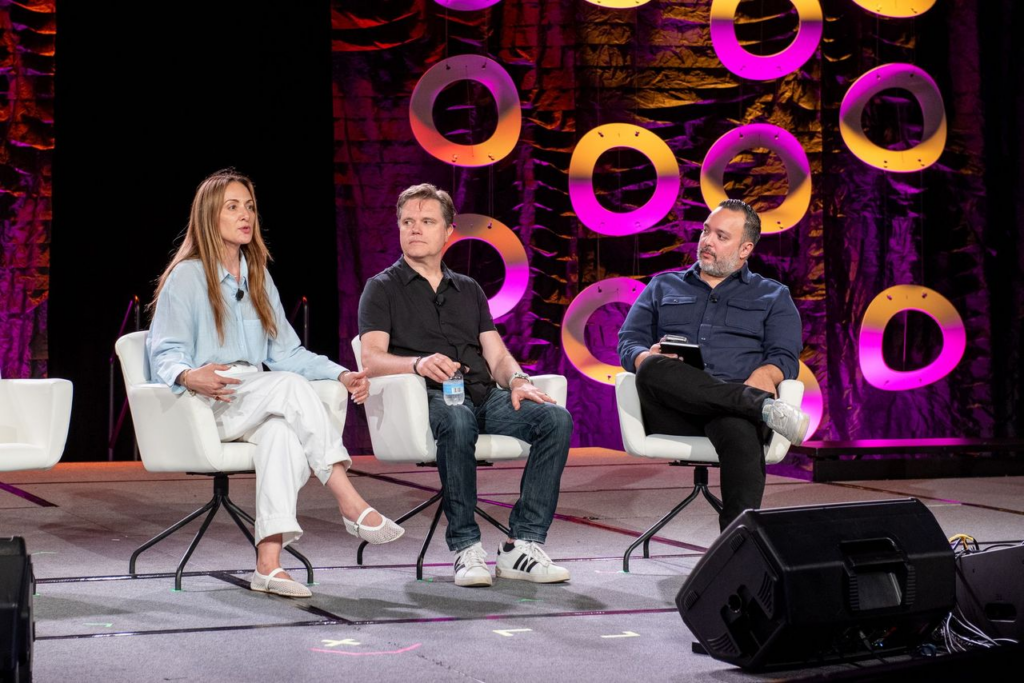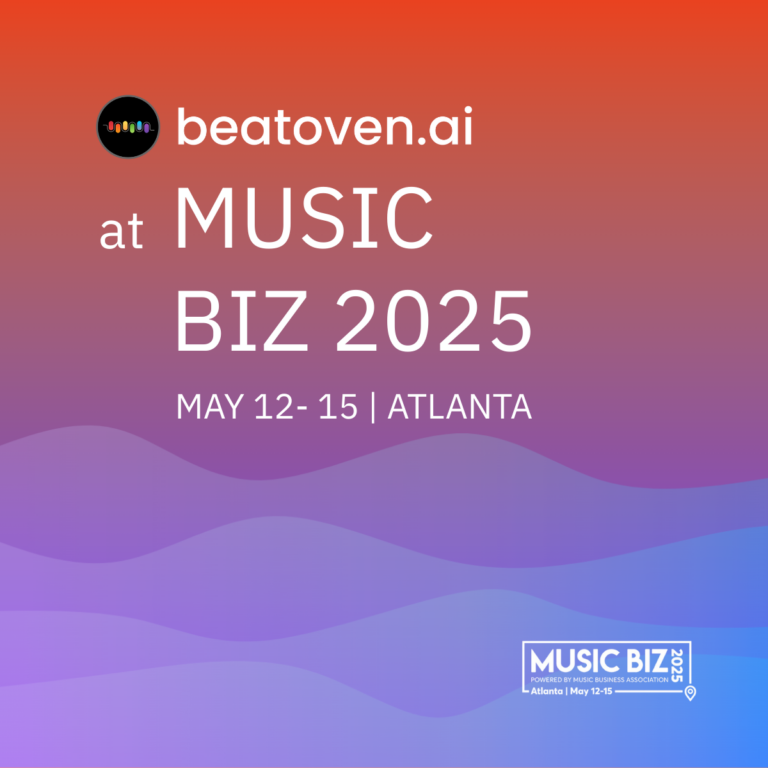Our co-founder, Mansoor Rahimat Khan, attended the Music Biz 2025 conference in Atlanta last week, connecting with industry professionals and gaining valuable insights on the evolving music technology landscape.
The event brought together representatives from every significant segment of the global music business, including labels, distributors, streaming platforms, publishers, rights management specialists, and tech innovators.
Key Discussions and Takeaways
The four-day conference featured over 30 sessions focused on the intersection of technology and traditional music business practices. Discussions on how AI transforms music creation, distribution channels, and artist development strategies were particularly relevant. The conference provided a comprehensive view of the industry’s position and direction in 2025.
AI in music: Present and future
Wednesday’s “AI Town Hall 2.0” examined the technological shifts of the past two years and their impact on the music industry. This follow-up to an earlier discussion assessed AI’s seismic changes to the music sector and broader cultural contexts. Panelists analyzed emerging platforms, presented real-world case studies, and discussed early outcomes of AI implementation.

Dr. Tamay Aykut’s “Attribution First” session addressed one of the fundamental challenges in AI music generation—ensuring proper attribution and fair compensation for artists. During his fireside chat with Edward Ginis of OpenPlay, Dr. Aykut elaborated on scientific discoveries behind trailblazing music attribution solutions and how they ensure appropriate recognition and payment in the age of AI.
The panel on “The Art of Licensing: Future-Proofing the Use of AI in Music” provided practical insights for navigating the complex licensing landscape as AI-generated music becomes more prevalent. These conversations aligned with our mission to develop AI music tools that support rather than replace human creativity.
Data-driven decision making
In “Where Do We Tour Next?” moderator Ted Kartzman of JamBase explored how booking and talent buying professionals can leverage data analytics while maintaining the touring business’s relationship-based nature. The panel discussed how the live music industry stands at the intersection of tradition and technology, where relationship-building remains fundamental but data now offers unprecedented insights for optimization.
This balance between technological innovation and industry tradition reflected the broader themes of the conference. It resonated with our approach to developing AI music tools that complement human creativity rather than attempting to replace it.
Independent and major collaboration
Jorge Brea of Symphonic Distribution led a session examining how independent and major players can better collaborate in today’s music ecosystem. Alongside Cat Kreidich of ADA Music and Simon Mortimer-Lamb of Nettwerk Music Group, the panel discussed how the music industry can bridge gaps between indies and majors to create a more collaborative, sustainable ecosystem.

MIDiA Research presented data showing non-majors now own 46.7% of the total recorded music market, highlighting the growing importance of independent music. However, 71% of independent label survey respondents expressed concern with streaming earnings thresholds, underscoring the challenges that remain despite market share growth.
Specialist collaboration models
The discussion on incorporating external specialists, led by Gareth Mellor of Downtown Music, offered valuable perspectives on building effective teams through strategic partnerships. Following the surge of independent consultants over the past two years, the panel explored how executives and leaders can effectively onboard these specialists to see projects through to completion.
The session covered approaches for alleviating workloads, fostering collaboration, managing expectations from various stakeholders, and how strategic delegation can unlock opportunities by assembling a “dream team.” These insights are particularly relevant for growing music tech companies seeking partnerships to expand their capabilities.
Looking Forward
Music Biz 2025 reinforced the industry’s openness to new technologies that expand creative possibilities while respecting the fundamental value of musical craft. The connections made at the conference with labels, distributors, and other music tech innovators will inform our approach as we continue developing our AI music generation platform.
The conference demonstrated that the most successful initiatives in music technology enhance rather than replace human creativity and build bridges between different segments of the industry. These principles will continue to guide Beatoven as we work to serve both creators and the broader music ecosystem.

Sreyashi Chatterjee is a SaaS content marketing consultant. When she is not writing or thinking about writing, she is watching Netflix or reading a thriller novel while sipping coffee.

